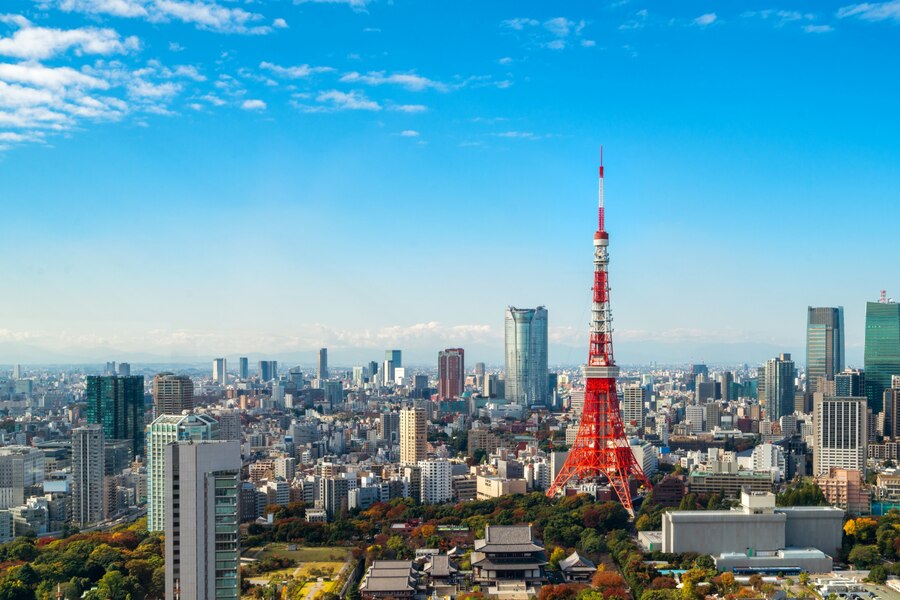Japan, an island nation in East Asia, is renowned for its rich cultural heritage, technological advancements, and economic strength. Beyond its economic and cultural impact, Japan’s passport stands out as one of the most powerful in the world, offering visa-free or visa-on-arrival access to 192 countries, alongside France, Germany, Italy, and Spain. This incredible level of access underscores Japan’s diplomatic clout and the trust it enjoys on the global stage.
Historical Context
Ancient and Feudal Japan
Japan’s history stretches back thousands of years, with its early history characterized by the influence of Chinese culture, the development of Shinto and Buddhist traditions, and the establishment of powerful feudal lords. The era of the samurai, marked by the rule of shoguns, shaped Japan’s social structure and governance for centuries.

Meiji Restoration and Modernization
The Meiji Restoration of 1868 marked a significant turning point in Japan’s history, ending centuries of feudal rule and ushering in a period of rapid modernization. The Meiji government implemented sweeping reforms, including the adoption of Western technologies and industrial practices, transforming Japan into a formidable industrial power by the early 20th century.
Post-War Recovery and Economic Miracle
Following its defeat in World War II, Japan underwent a remarkable recovery. With support from the United States and a focus on rebuilding its economy, Japan emerged as a global economic powerhouse by the 1960s and 1970s. This period, known as the “Japanese Economic Miracle,” saw the rise of iconic industries such as automotive and electronics, propelling Japan to the forefront of global innovation and production.
Economic Strength
Diversified Economy
Japan’s economy is one of the most diversified and advanced in the world. It is home to some of the largest and most influential corporations, including Toyota, Sony, and Mitsubishi. The automotive industry, electronics, robotics, and advanced manufacturing are key pillars of Japan’s economic landscape. Additionally, Japan has a significant presence in finance, pharmaceuticals, and services.
Technological Innovation
Japan is synonymous with technological innovation. The country has been at the forefront of developing cutting-edge technologies, from robotics and automation to consumer electronics and biotechnology. Japanese firms invest heavily in research and development, driving continuous advancements that have global implications.
Governance and Public Policy
Efficient Government and Rule of Law
Japan’s governance is characterized by efficiency, a strong rule of law, and a commitment to transparency. The Japanese government has implemented policies that promote economic stability, social welfare, and environmental sustainability. Japan’s legal system is robust, ensuring the protection of property rights and the enforcement of contracts, which fosters a favorable business environment.
Social Policies and Healthcare
Japan boasts one of the highest life expectancies in the world, thanks in part to its comprehensive healthcare system. The country provides universal healthcare coverage, ensuring that all citizens have access to high-quality medical services. Additionally, Japan’s social policies emphasize education, public safety, and the well-being of its elderly population.
Cultural Influence and Soft Power
Rich Cultural Heritage
Japan’s cultural heritage is one of its most enduring assets. Traditional arts such as tea ceremonies, calligraphy, ikebana (flower arranging), and martial arts are integral parts of Japanese culture. Additionally, Japan’s historical sites, including ancient temples, shrines, and castles, attract millions of tourists each year.
Global Influence of Japanese Pop Culture
In recent decades, Japan has become a global cultural phenomenon through its pop culture exports. Anime, manga, video games, and J-pop (Japanese pop music) have garnered a massive international following. Icons like Hello Kitty, Pokémon, and Studio Ghibli films have transcended cultural boundaries, making Japan a significant player in global entertainment.
The Japanese Passport: A Symbol of Global Mobility
Visa-Free Access
The Japanese passport is highly esteemed for its extensive visa-free or visa-on-arrival access to 192 countries, matching the access provided by the passports of France, Germany, Italy, and Spain.
Below is a summary of the countries and regions where Japanese passport holders enjoy visa-free or visa-on-arrival access:
| Region | Countries/Regions |
|---|---|
| Africa | Botswana, Cape Verde, Comoros, Eswatini, Gabon, The Gambia, Ghana, Guinea-Bissau, Kenya, Lesotho, Madagascar, Malawi, Mauritania, Mauritius, Mayotte, Morocco, Mozambique, Namibia, Réunion, Rwanda, Senegal, Seychelles, Sierra Leone, Somalia, South Africa, St. Helena, Tanzania, Togo, Uganda, Zambia, Zimbabwe |
| Americas | Antigua and Barbuda, Argentina, Bahamas, Barbados, Belize, Bermuda, Bolivia, Brazil, Canada, Chile, Colombia, Costa Rica, Dominica, Dominican Republic, Ecuador, El Salvador, French Guiana, Grenada, Guatemala, Guyana, Haiti, Honduras, Jamaica, Mexico, Panama, Paraguay, Peru, Saint Kitts and Nevis, Saint Lucia, Saint Vincent and the Grenadines, Suriname, Trinidad and Tobago, United States, Uruguay, Venezuela |
| Asia | Armenia, Bahrain, Bangladesh, Brunei, Cambodia, China, Cyprus, Georgia, Hong Kong, India, Indonesia, Israel, Japan, Jordan, Kazakhstan, Kuwait, Kyrgyzstan, Laos, Lebanon, Macao, Malaysia, Maldives, Mongolia, Myanmar, Nepal, Oman, Pakistan, Palestine, Philippines, Qatar, Saudi Arabia, South Korea, Sri Lanka, Taiwan, Tajikistan, Thailand, Timor-Leste, Turkey, UAE, Uzbekistan, Vietnam |
| Europe | Albania, Andorra, Austria, Belarus, Belgium, Bosnia and Herzegovina, Bulgaria, Croatia, Cyprus, Czech Republic, Denmark, Estonia, Faroe Islands, Finland, France, Georgia, Germany, Greece, Hungary, Iceland, Ireland, Italy, Kosovo, Latvia, Liechtenstein, Lithuania, Luxembourg, Malta, Moldova, Monaco, Montenegro, Netherlands, North Macedonia, Norway, Poland, Portugal, Romania, Russia, San Marino, Serbia, Slovakia, Slovenia, Spain, Sweden, Switzerland, Ukraine, United Kingdom |
| Oceania | Australia, Cook Islands, Fiji, French Polynesia, Kiribati, Marshall Islands, Micronesia, New Caledonia, New Zealand, Niue, Palau, Papua New Guinea, Samoa, Solomon Islands, Tonga, Tuvalu, Vanuatu |
| Others | British Virgin Islands, Falkland Islands, Gibraltar, Greenland, Guadeloupe, Guam, Martinique, Montserrat, Saint Pierre and Miquelon, Turks and Caicos Islands, Western Sahara |
Factors Contributing to Passport Strength
Several factors contribute to the strength of the Japanese passport. Japan’s stable political environment and strong legal system enhance trust from other nations. The rigorous security measures and effective immigration controls implemented by Japan ensure that Japanese travelers are well-regarded globally. Additionally, Japan’s proactive diplomatic efforts and adherence to international agreements foster strong bilateral and multilateral relationships.
Challenges and Future Prospects
Demographic Challenges
Japan faces significant demographic challenges, particularly its aging population and declining birth rates. These trends pose threats to economic growth, labor market sustainability, and social security systems. The government has implemented policies to address these issues, including promoting higher birth rates, increasing female workforce participation, and encouraging immigration of skilled workers.
Economic Reforms
To sustain its economic growth, Japan must continue to implement structural reforms. These include labor market reforms, corporate governance improvements, and measures to increase productivity. Embracing digital transformation and investing in new technologies, such as artificial intelligence and renewable energy, will be crucial for Japan’s future economic vitality.
Environmental Sustainability
As a global leader in technology and industry, Japan has a responsibility to address environmental sustainability. The country is actively pursuing policies to reduce carbon emissions, promote renewable energy, and enhance energy efficiency. Japan’s commitment to international environmental agreements and its investments in green technologies underscore its dedication to a sustainable future.
International Relations and Diplomatic Influence

Active Diplomatic Engagement
Japan maintains an active and strategic diplomatic presence on the global stage. It is a member of numerous international organizations, including the United Nations, G7, G20, and ASEAN. Japan’s foreign policy emphasizes peace, stability, and economic cooperation, particularly in the Asia-Pacific region. Through initiatives like Official Development Assistance (ODA), Japan supports developing countries, fostering goodwill and strengthening diplomatic ties.
Soft Power and Global Influence
Japan’s cultural diplomacy plays a significant role in its international relations. Through cultural exchanges, educational programs, and promotion of Japanese arts and traditions, Japan enhances its soft power. The Japan Foundation, for example, promotes Japanese culture and language education worldwide. Additionally, Japan’s role in global entertainment and media, including anime and video games, bolsters its cultural influence.
Conclusion: Japan’s transformation into a cultural and economic powerhouse is a testament to its resilience, innovation, and strategic vision. The strength of its passport, offering visa-free access to 192 countries, highlights Japan’s remarkable diplomatic influence and the trust it commands globally. As Japan navigates future challenges, including demographic shifts, economic reforms, and environmental sustainability, it will continue to leverage its strengths and uphold its values. The story of Japan is one of continuous evolution and aspiration, serving as an inspiration to nations worldwide.
Disclaimer
The information provided in this document is for general informational purposes only. While efforts are made to keep the information up-to-date and accurate, no representations or warranties of any kind, express or implied, are made about the completeness, accuracy, reliability, suitability, or availability with respect to the content. The list of countries offering visa-free or visa-on-arrival access to Japanese passport holders is subject to change based on international agreements and respective countries’ immigration policies.

Get Free Expert Advice: Are you ready to embark on your next adventure? Whether you’re seeking a work permit, tourist visa, or study opportunities in Canada or other countries, we’re here to help! Contact us today to learn how our expert services can simplify your journey and turn your dreams into reality. Reach out now and let’s start planning your future together!
- Canada Citizenship Requirements: Everything You Need to Know
- Canada’s New Visa Rules: What It Means for Indian Students
- Navigating Student Visa Regulations for Studying in the US, UK, Australia, and Canada
Also read:
- Canada’s New Rural and Francophone Immigration Pilots: A Fresh Opportunity for Skilled Workers
- Hundreds of U.S. Visa Appointments Canceled in Colombia: What It Means for Future Travelers
- Ultimate Guide to Dubai Visa Applications for Indian Tourists: Avoid Rejection & Ensure a Hassle-Free Trip with These Key Tips!
- New Canada Immigration Fees Effective December 1, 2024: Everything You Need to Know
- RS Global Immigration Jalandhar: Your Gateway to International Opportunities




